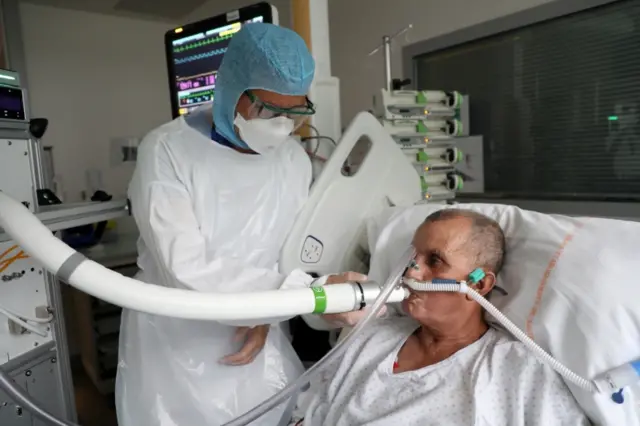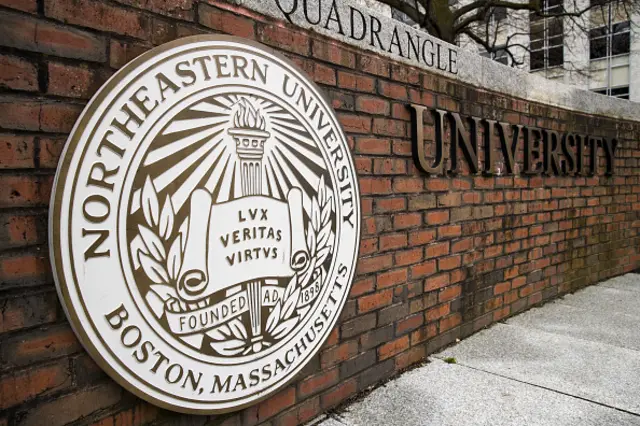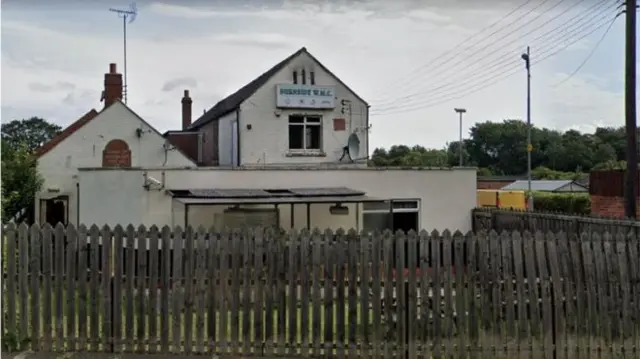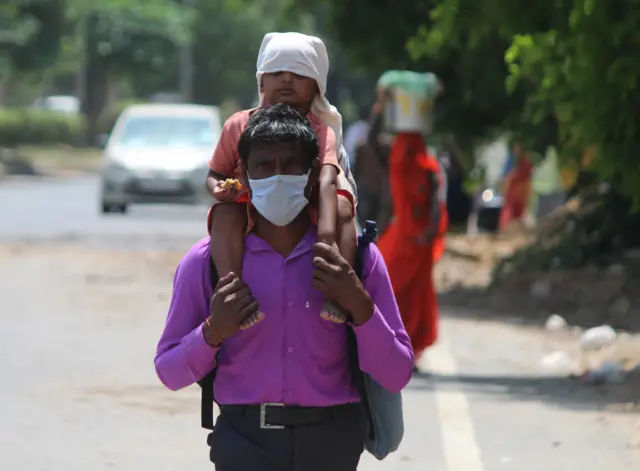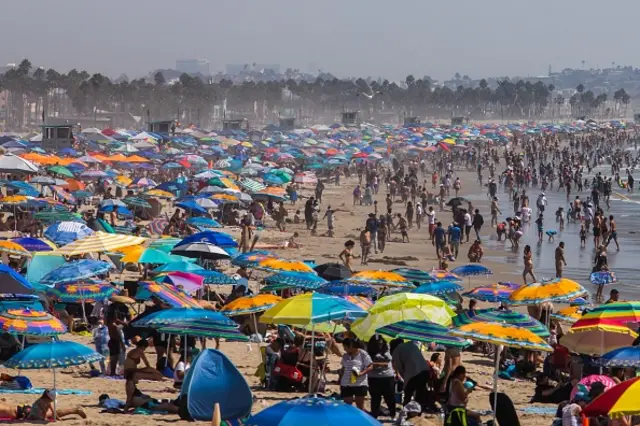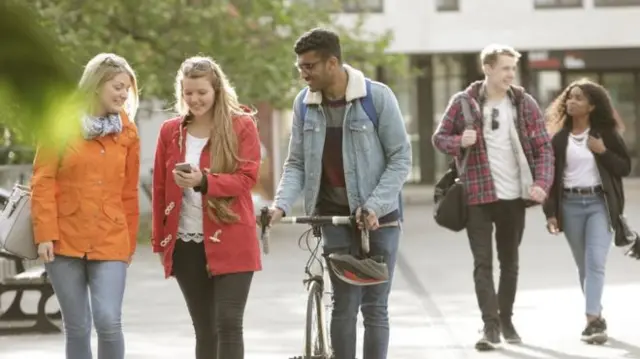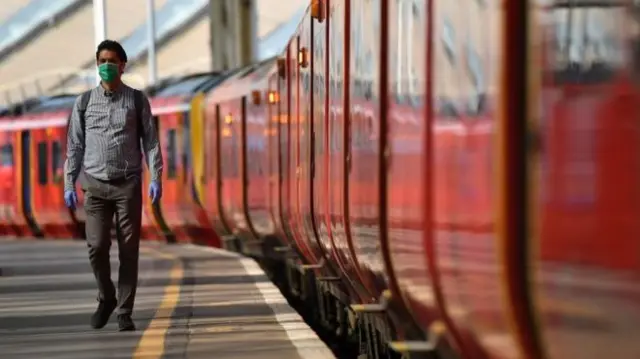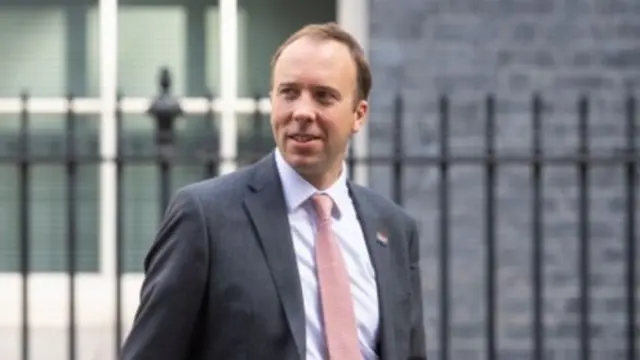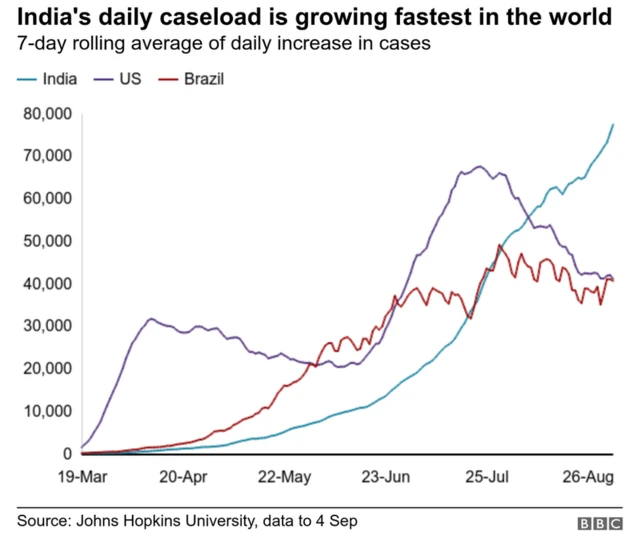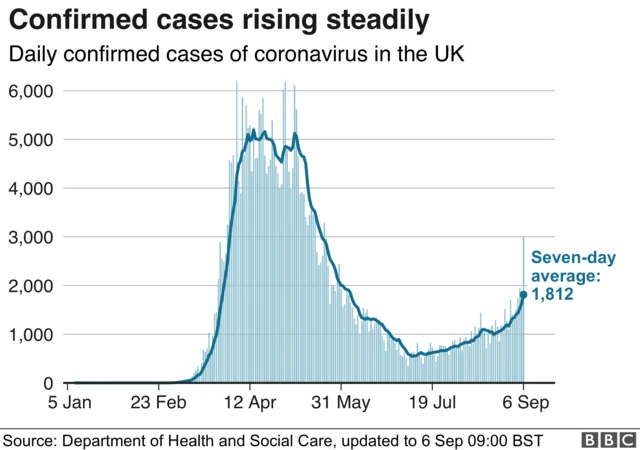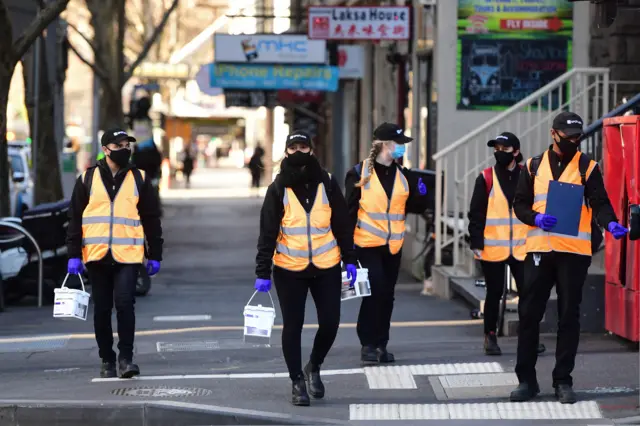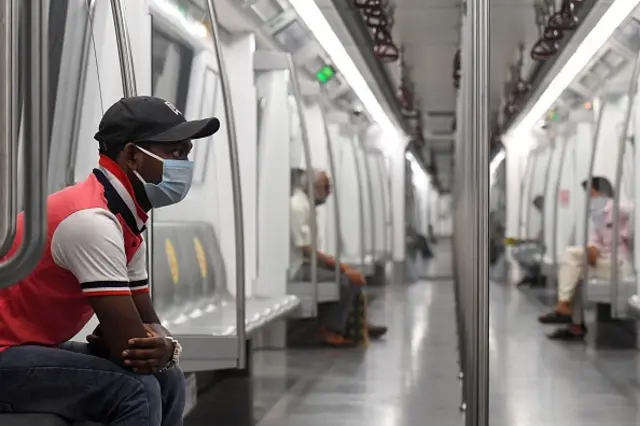Dead virus in tests?published at 09:15 BST 7 September 2020
The main test used to diagnose coronavirus is so sensitive it could be picking up fragments of dead virus from old infections, scientists say.
Most people are infectious only for about a week, but could test positive weeks afterwards.
Researchers say this could be leading to an over-estimate of the current scale of the pandemic.
But some experts say it is uncertain how a reliable test can be produced that doesn't risk missing cases.
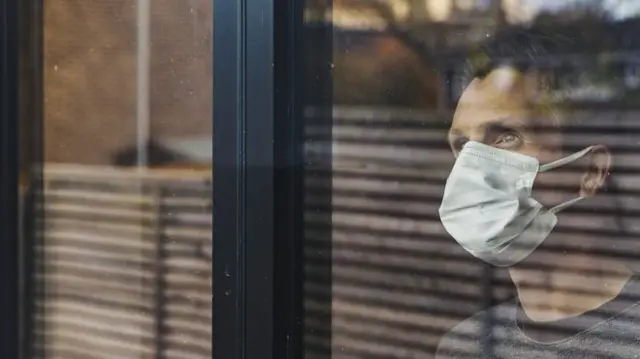 Image source, Getty Images
Image source, Getty Images